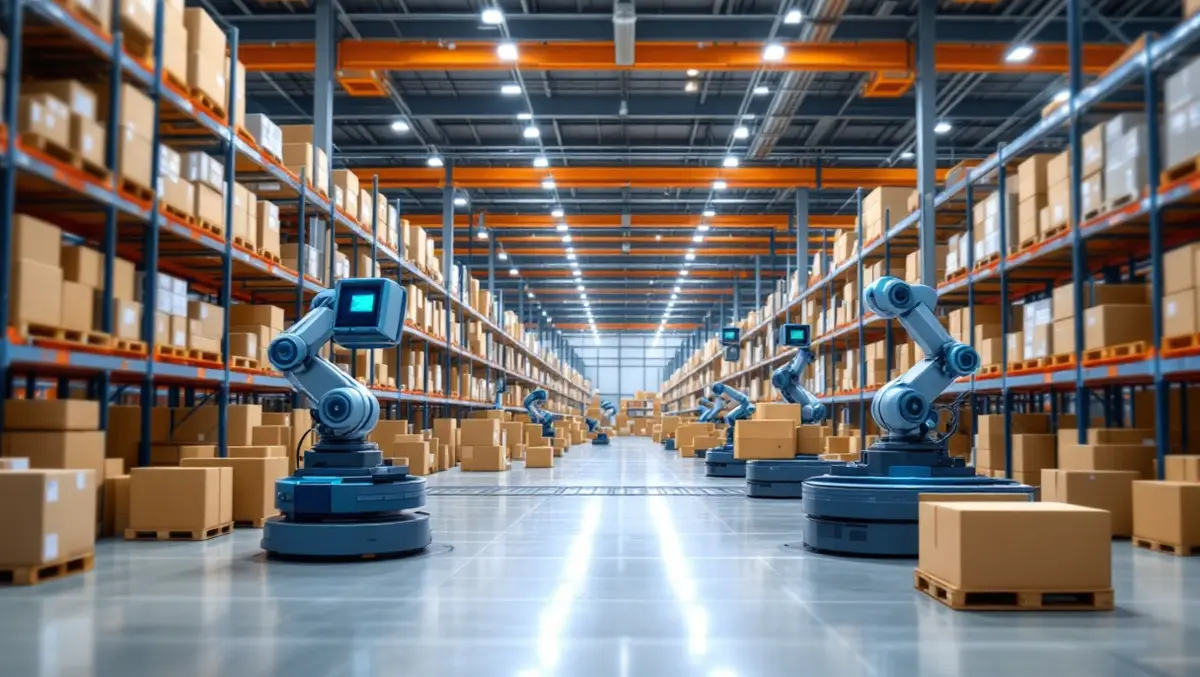
UK fulfilment warehouses 85% automated by 2030, study finds
New analysis has found that over 85% of UK fulfilment warehouses are expected to be automated by 2030 due to advances in Artificial Intelligence (AI) and robotics.
The report, published by Impact Express, examines how the adoption of AI technologies in logistics is accelerating amid ongoing labour shortages, increased eCommerce activity, and financial incentives to reduce operational costs. The research documents rapid shifts already occurring in the industry, projecting automation in warehouse logistics to become the standard by the end of the decade.
The findings reveal that AI adoption is already notable in UK fulfilment operations. In 2023, 45% of fulfilment centres had implemented AI-powered automation. More than half of businesses in this sector increased their investment in supply chain technology, with a priority placed on AI and automation solutions.
The report anticipates this momentum will continue, estimating that over half of UK fulfilment centres will use AI in their operations by 2025, rising to 70% by 2027. Globally, AI is forecast to handle more than 90% of warehouse logistics tasks by 2030, signalling a near-complete industry transformation.
"What stands out in this research is how fast things are moving. Technologies like AI and robotics, once limited to the biggest players, are becoming more accessible and widespread," Neil Miller, Managing Director at Impact Express, commented on the pace of change.
A significant contributor to the automation trend is the deployment of service robots within transportation and logistics. The report notes a 44% rise in the sales of these robots in 2022, followed by a further 35% increase in 2023. Projections suggest that 140,000 service robots will be sold in 2024 alone.
For the UK, this corresponds to an average of about 4.25 robots per fulfilment warehouse by 2025, with this figure expected to increase to 7.52 robots by 2030. As of 2024, the UK is estimated to have around 98,463 fulfilment warehouses.
"The growth in service robot adoption shows that this isn't a future idea - it's already happening." He further advised, "Fulfilment businesses should be assessing their current operations and identifying areas where automation could improve efficiency and help them keep up with rising customer expectations," Miller said on the deployment of robotics in warehousing.
The analysis identifies several key AI technologies driving change within warehouses. These include automated picking and sorting systems, AI-powered inventory management using predictive analytics, Autonomous Mobile Robots (AMRs) for internal navigation, AI-enhanced order processing, and the application of computer vision and machine learning for quality control.
Impacts on the workforce are also addressed in the report. Traditional manual warehouse roles are expected to decline as automation becomes predominant. However, new opportunities are projected to arise in areas such as AI logistics analysis, automation engineering, data specialisation, and system supervision.
Large-scale UK employers such as Ocado, John Lewis, and GXO Logistics are highlighted as early adopters of these technologies. The report describes how their use of AI and robotics has resulted in increased operational efficiency as well as the redeployment of staff into more skilled roles.
The implications of the findings are expected to be felt across the broader logistics and wholesale courier sectors. As automation in fulfilment centres becomes the industry norm, benefits such as higher speed, accuracy, and efficiency are anticipated throughout associated supply chains.
For wholesale courier providers like Impact Express, automation in warehousing necessitates adapting to changing service expectations informed by AI-optimised fulfilment. This will involve integrating seamlessly with automated systems and utilising the associated advancements to provide quicker, more reliable, and cost-effective delivery options for clients.
The analysis concludes that the accelerating shift towards AI-led fulfilment highlights the importance for all participants in the logistics sector to embrace digital transformation in order to address evolving customer needs and maintain competitiveness.


